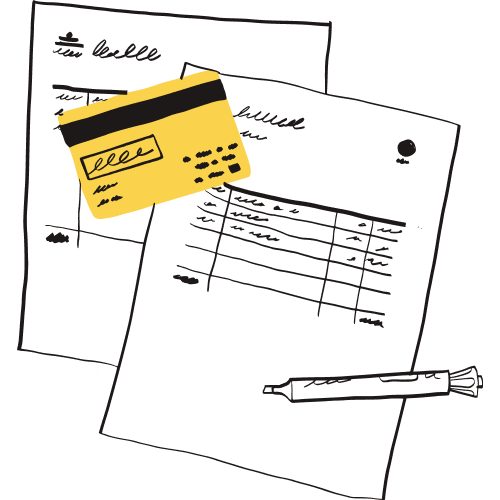
Commonly used types of Vermont bill of sale forms
In the state of Vermont, there are various different bill of sale forms in use. However, some are more common than others.
Used when buying or selling a motor vehicle in Vermont. The motor vehicle bill of sale includes essential vehicle information, such as the model year, odometer reading (odometer disclosure statement), vehicle identification number, and date of sale. This will help during your vehicle registration at the Vermont Department of Motor Vehicles (Vermont DMV).

Suggested for transferring ownership of a boat or watercraft. It includes information about the vessel, including the hull identification number, make, model, and year. Making a boat bill of sale will create an easy motorboat registration for the new owner(s).

When selling or purchasing a firearm privately, a firearm bill of sale is important. It includes details of the firearm, such as the make, model, serial number, and any additional accessories included in the sale.

This bill of sale is versatile for private sales and can be used for various types of personal property transactions. It covers items like electronics, furniture, appliances, and more. It includes descriptions and details of the property being sold.

How to write a Vermont bill of sale
Creating a bill of sale in the state of Vermont is a straightforward process thanks to our easy-to-use template.
- Start by collecting all necessary details about the transaction, including the buyer's and seller's names, mailing addresses, phone numbers, and identification numbers.
- Provide a clear and concise description of the item being sold, including any distinguishing features or characteristics.
- Specify the agreed-upon purchase price and the currency in which it will be paid.
- If there are specific terms or conditions related to the sale, such as payment methods, warranties, or delivery arrangements, be sure to include them in the bill of sale.
- Make sure both the buyer’s and seller’s signatures are present, and dated, to acknowledge their agreement to the terms stated.
Frequently asked questions
While a Vermont bill of sale isn’t mandatory for all asset transactions, it’s highly recommended. Having a bill of sale provides legal protection and establishes a clear record of the transaction.
In most cases, a Vermont bill of sale doesn’t require notarization. However, specific asset transactions or individual preferences may warrant notarization for additional authentication.
It's advisable to use a specific bill of sale form to ensure compliance with state laws and regulations. Generic forms may lack certain requirements or specifics needed for Vermont transactions.
When creating a Vermont bill of sale for a motor vehicle, include the vehicle's make, model, identification number (VIN), odometer reading, purchase price, and the signatures of both the buyer and seller. It will streamline Vermont registration, creating an easy transfer of ownership.
Absolutely. Our Vermont bill of sale template is fully customizable, allowing you to add or remove sections as needed to tailor it to your specific transaction requirements.
Yes, a Vermont bill of sale is required to register a boat. It verifies the ownership transfer and provides the necessary information for the boat registration process.
No, a Vermont bill of sale isn’t required to register a gun in the state. However, it’s recommended to maintain a bill of sale as a record of the transaction for legal purposes.
Looking for other Vermont documents?
Formswift is not a law firm and does not provide legal advice or representation. Formswift's documents are not a substitute for the advice of an attorney. Communications between you and Formswift are governed by the Formswift Privacy Policy but are not protected by the attorney-client privilege or as work product. Formswift does not provide advice, opinions, or recommendations about individual's legal rights, options, strategies, or the selection of forms. Your use of the Formswift website and forms is governed by the Formswift Terms of Service.
